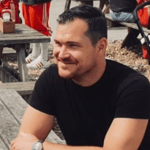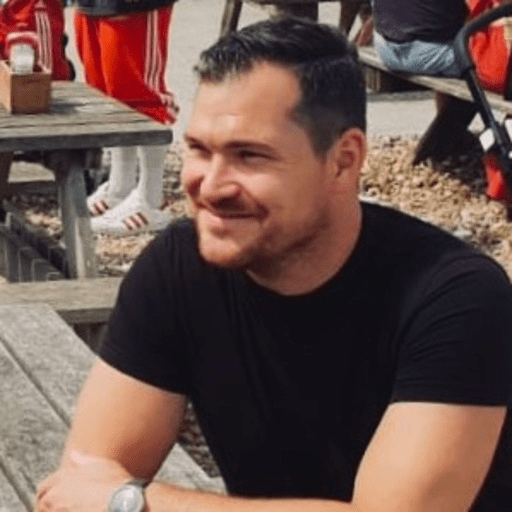Table of contents
The hospitality industry was one of the hardest hit during the 2020 lockdowns, and the effects of this are still being felt today, at the end of 2021. You can see that trust has been broken; a once welcoming industry for many first-time jobs like receptionists, waiters, concierges, cleaners, and kitchen staff, is now regarded as high-risk employment due to lockdowns and the continuous threat of imminent government restrictions which would cause restaurants and hotels to close again.
This same high-risk view spilled out into hospitality tech too. An industry forced to tighten its expenditure to survive over the past 18 months is not regarded as a safe space, especially for the creative and innovative product managers we seek. So, the prospect of having to fill five roles through 2021 was a daunting prospect.
Building a team during the pandemic
Actually, at first things looked promising. There was a healthy pipeline of product managers from fellow hospitality tech firms, often because necessary lay-offs by companies were delayed until autumn 2020, by which time Mews was starting to plan for growth again. However, we were seeking product managers to fill our empowered teams, which filters down the candidate pool significantly. The skill set required for this is much more difficult to find. Rather than being an individual contributor managing a backlog of feature requests, these roles concentrate on the ability to find and solve complex problems and ultimately affect user behavior and process changes in the industry.
Hiring was a priority, and I gave myself an objective of finding the right talent by May 2021, which meant that with the holiday season slowdown, I had little over four months to do that. The first few interviews in 2021 were promising, and with the help of our recruitment team, we had some second-round interviews lined up. However, after a few carefully curated questions in the second round of interviews it was clear that the candidates we were getting through were not the right ones.
Refining the interview process
Collectively with the recruitment team we moved some of the second-round questions into the initial interview round and created a list of reasons for why a candidate would be a fit and a list of red flags to look out for. This was very effective but dried out the pipeline of candidates making it to the second round. Fast forward to the end of March 2021 and I was beginning to think about lowering my standards, fearing that I was being too picky and that I’d put emphasis on the wrong skills. Luckily, our recruitment team came to the rescue by bolstering our outreach and throughout April more and more promising candidates were coming through to the second round of interviews.
With a stroke of luck we also managed to hire an experienced product leader who helped devise a practical round of interviews which further filtered our candidates into the mindset that we were looking for. Someone who can find the right complex problems and a way of attempting to solve them. Someone with no fear of failing because most of product management is actually about failing. Someone able to look beyond a laundry list of feature requests.
By the end of April, we had two offers go out. By the end of May another three, and while we were intensely searching for candidates on the outside, we had to remember our internal people, one of who developed their skills and one whom moved from another position to an entry level product management role.
Of course, recruitment is a very human and sometimes unpredictable science, and between offers being sent out and product managers arriving, a lot can happen. A rollercoaster of dropouts, delays and long notice periods still made for an interesting summer. But as of November 2021 I am proud to have a team of seven incredible, diverse individuals working on the core of Mews’ product offering.
What did I learn about building a product team?
The last 10 months have been months of relentless interviewing that demands high energy from start to finish, especially when you’re branching out of your HQ into the wider international product world. After realizing that the Prague market was not 100% right for the talent that we were looking for, we looked beyond, to Amsterdam, London, and Berlin to name a few. Those were areas where Mews as a product company is less known, which in turn means that we needed to get our vision across in the interviews. We needed to inspire future Mews product managers to believe in what we believe in and clearly present the company’s ‘Why?’ in each of the interview rounds.
Of course, interviews are all about setting the right expectations so that both sides can make an informed decision on whether to work together, so this also meant ensuring not to oversell the dream while being inspiring. This takes a lot of preparation, energy and effort but forms an integral part of our rebuilding journey.
Along with this, what I find important is transparency throughout the process. When asked difficult questions about Mews it was always my objective to answer clearly and with unquestionable transparency. This was combined with quick follow-ups to ensure that the process runs smoothly. During the main six months, every other meeting in my calendar was secondary to the interview appointments. It had to be the priority so that we were able to get the right candidates through the process in a matter of two weeks at most.
The importance of diversity
I learned that diversity is one of the most important aspects of building a new team. A team with diverse backgrounds means that you have a team that thinks about problems differently, not only from a cultural perspective but also from an expectations and norms point of view. A team with diversity means that there is less effort required to imagine and tackle problems from different points of view and to empathize with different personas that will use your products.
Diversity is still one of the main challenges for me in finding new talent, and I’m reaching out to peers and my network to learn more about how to position our vacancies, how to tailor our interview process, and how to adjust our expectations to ensure that we get a diverse pool of candidates.
While I am extremely happy with the team that we built thus far, there is still a part of me that feels that some of the decisions during the process were governed by ‘gut-feeling’. Of course, that ‘gut-feeling’ is based on years of experience in people management and hiring, and are often values that I see in people that I find hard to articulate.
Nevertheless, I want to strive for more certainty and clarity when putting out offers for new talent to join Mews and will be revisiting my interview techniques and interview processes with coaches for the next round of incredible growth at Mews. Especially during the rollercoaster between offer, acceptance, and starting date, I want to be more certain that we will be welcoming that person at Mews and putting them through our amazing onboarding.
What’s next for product at Mews?
I'm now building the future, a fast acceleration of our product management capabilities over the next 12 months. This means that I’ll be looking for six more product managers and for more senior talent to help me lead this amazing group of people.
So, it’s all about tightening up the interview questions, revamping our product challenges, introducing contact with the amazing team that’s already in place at Mews, and ensuring that we have a network of diverse, talented, ambitious, and curious people that want to change user behavior, processes, and challenge the status quo in the hospitality industry and beyond.

Author
Josef Lapka
Josef is a product management leader with a passion for hotel tech. As well as having buckets of experience in public and private sectors across multiple industries, he's also a really lovely guy.

Essential hotel technology for general managers
Download now
Hospitality hot takes straight to your inbox



.webp)